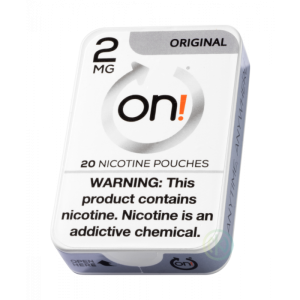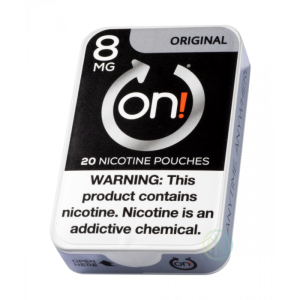What Are Nicotine Pouches?
A nicotine pouch is a small sachet that contains the addictive substance nicotine along with other ingredients. Unlike traditional tobacco products, it does not contain tobacco leaves. Some manufacturers promote nicotine pouches as a safer alternative to smoking and chewing tobacco. However, it is essential to consult your healthcare provider before using them as a method to quit smoking, as they are not FDA-approved nicotine replacement therapies like nicotine gum or lozenges.
What’s Inside a Nicotine Pouch?
The primary components of nicotine pouches include nicotine, water, flavorings, sweeteners, and plant-based fibers. Brands like On!, Zyn, and Velo offer these pouches in various strengths, meaning some contain more nicotine than others. The absence of tobacco leaf differentiates them from other smokeless nicotine products like chewing tobacco, snuff, and snus. Although snus also comes in small pouches, it contains moist, finely ground tobacco.
How to Use Nicotine Pouches
To use a nicotine pouch, place it between your gum and lip for up to an hour. You do not smoke or swallow it; instead, your body absorbs the nicotine through the mucous membranes in your mouth.
Side Effects of Nicotine Pouches
More research is needed to determine the safety and efficacy of nicotine pouches. However, they can cause side effects such as:
- Hiccups
- Gum irritation
- Nicotine addiction
- Sore mouth
- Upset stomach
Never share a nicotine pouch with others, and contact your doctor immediately if you swallow one.
Are Nicotine Pouches Safer?
Nicotine pouches may be safer than snus and other smokeless tobacco products, which can lead to:
- Cancers of the mouth, throat, and pancreas
- Gum disease
- Tooth loss
- Cavities and stained teeth
- Increased risk of heart disease and stroke
Long-Term Effects of Nicotine Pouches
Nicotine is harmful and highly addictive. It can cause heart, lung, stomach, and fertility issues, raise blood pressure, and weaken the immune system. It may also contribute to the hardening of artery walls, potentially leading to a heart attack. Since nicotine is addictive, you may experience withdrawal symptoms if you stop using it.
Do Nicotine Pouches Cause Cancer?
Nicotine itself does not directly cause cancer. People have safely used nicotine replacement therapy (NRT) for years to quit smoking. However, research indicates that nicotine can promote tumor growth, making cancer more aggressive.
Popularity and Concerns
Nicotine pouches are sold in attractive packaging and a variety of flavors, such as citrus, peppermint, and coffee. This marketing strategy may appeal to young people and non-smokers who are unaware of nicotine’s harmful effects. Social media influencers also promote these pouches, showing how they use them discreetly in daily life.
Better Ways to Quit Tobacco
Consult your doctor before using nicotine pouches. If you are a heavy smoker, they may recommend FDA-approved nicotine replacement therapies like:
- Nicotine patches
- Gum
- Lozenges
- Nasal sprays
- Inhalers
These can help manage cravings and withdrawal symptoms. Other methods to quit tobacco include:
- Working with your doctor on a quit plan
- Calling a quit line like 800-QUIT-NOW
- Using programs like SmokefreeTXT
- Getting tips from apps like QuitGuide
- Avoiding triggers
- Managing stress through healthy habits like exercise and meditation
- Joining a quit-smoking support group



